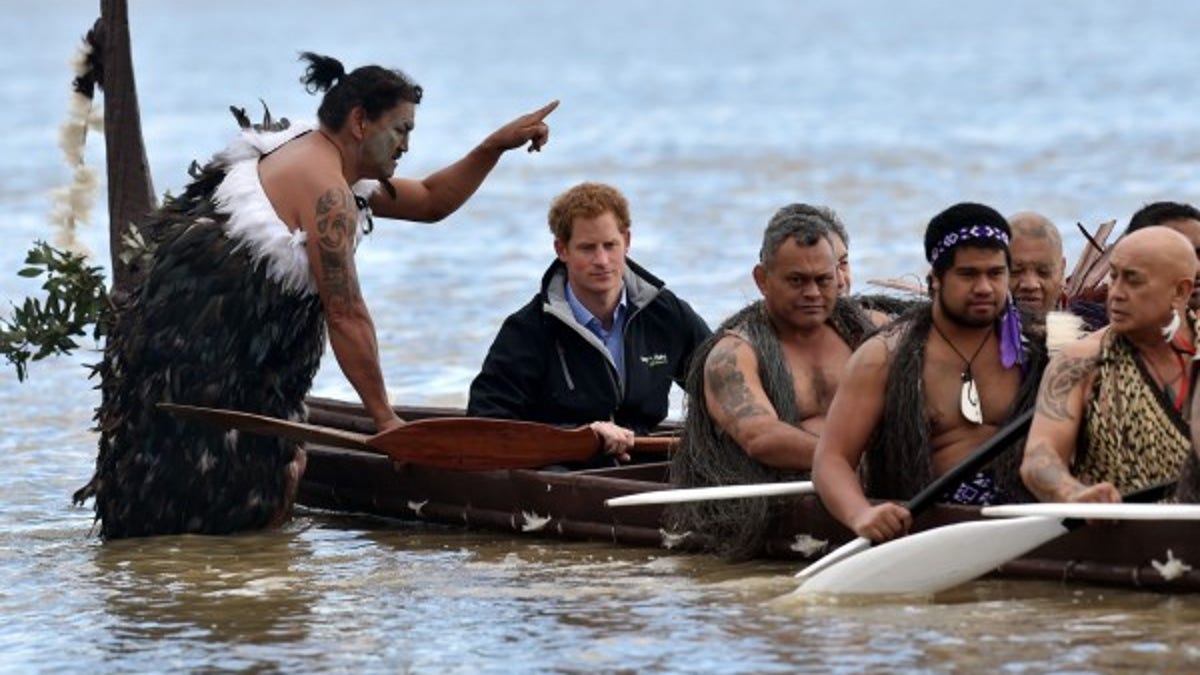
Britain's Prince Harry visited the river in 2015. (Owen Humphreys/PA Wire/Press Association via AP Images)
In what's being described as a first, lawmakers have approved giving human rights to a river.
DAKOTA ACCESS PIPELINE: TRIBES' REQUEST TO STOP OIL FLOW DENIED
In a push that started way back in 1870, New Zealand's Whanganui River this week was signed into a legal status under the Whanganui Treaty settlement. Under the approved bill, there is no legal difference between damaging the river and damaging tribespeople; thus, they are one in the same and subject to the same charges and prosecution in the eyes of the law.
Two local guardians were set to oversee the affairs of the river, located in the North Island and the country’s third-largest.
ESCAPED COBRA TURNS UP ON TWITTER
“I know the initial inclination of some people will say it is pretty strange to give a natural resource a legal personality,” Treaty Negotiations Minister Chris Finlayson said. “But it’s no stranger than family trusts, or companies or incorporated societies.”
However, local lawmaker Adrian Rurawhe affirmed that this wasn’t such a unique concept for their community, as the prosperity of the river and the prosperity of the people were directly connected and reflected in the Maori expression “I am the river and the river is me.’’
Negotiations with a local tribe started in 2009, news.com.au reported.
Although it is not yet clear what protective mechanisms will be put in place and what commercial and recreational provisions will be allowed, the treaty's signing was met with weeps of joy from hundreds of tribal representatives this week who saw it as a step in the right direction.
“We can trace our genealogy to the origins of the universe. And therefore rather than us being masters of the natural world, we are part of it,” the lead negotiator for the Whanganui tribe, Gerrard Albert stated. “We want to live like that as our starting point. And that is not an anti-development, or anti-economic use of the river but to begin with the view that is a living being, and then consider its future from that central belief.”
The river has seen some famous guests -- including Britain's Prince Harry, who paddled a traditional Maori canoe there in 2015.
The Associated Press contributed to this report.







































